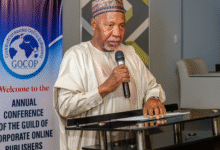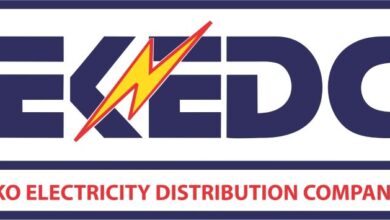FG committed to repositioning mining cadastre for improved productivity

The Federal Government on Wednesday expressed its commitment to repositioning the Mining Cadastre Office (MCO), through effective transformation, to improve productivity across the country.
The Director-General of the MCO, Mr Simon Nkom, made the commitment at a Review for Development (R4D) Retreat, in Abuja.
Nkom said the essence of the retreat was to chart ways to reposition the entire mining cadastre to meet up with recent challenges being faced by the office.
The News Agency of Nigeria (NAN) reports that the MCO innuagurated a new Online Mining Cadastre System based on GAF’s eMC+ framework, in November 2022.
The new system will connect the six newly-established zonal offices in six geopolitical zones with the headquarters in Abuja and ensure efficient and transparent management of the mining sector in Nigeria.
Nkom said through this system, investors would be provided with possibility to submit applications, adding that the system would enable the investors to track the processing.
“The essence of the retreat is for us to do a review on how to adapt on the new EMC+ system.
“We have to discuss on how we can move forward to be able to achieve the best in the next years to come.
“Knowing where we are coming from, we have to work hard to ensure we get what we are looking for, to be able to achieve our objectives.
“In view of that, there’s a need for the staff to be retreated to make the work better.
“With the help of Economic Financial Crimes Commission (EFCC), Department of State Service (DSS) and Indepence Corrupt Practices and Other Related Offences Commission (ICPC).
Nkom said there had been a code of conduct to ensure that at the end of the day, the government and other relevant stakeholders would be figured out.
He said that the concept of the retreat was the process of the new technology.
According to him, if the people do not re-orient themselves, then they are going to have a problem in terms of the process and in terms of the new technology.
“For the first time in the history of the mining cadastre, this event has been the first retreat.
“So, there is a need for re-organising and putting in the key things to play a big role in the mining cadastre in terms of adding value,” he said.
The director-general said that the main aim and objective of the system was to migrate it to an onlined system in a good time.
He said that with the system, anybody can have access to submit an application from any where in the world.
He said that number of people submitting their applications were increasing and going toward perfection.
“So, the system has been made easy for people to submit their applications online.
“There has been about 40 per cent total increase of submitted applications online so far from day to day at different hours which is the essence of the system.
“Offices have been made where people who have challenges with submitting any type of application can be enlightened on how to go about it, especially when it comes to visas applications.
“Looking at the system, one can say that the mining system is a legal activity and the mandate is insurance,” he said.
Nkom said the office has a department of protectorate, which was in charge of illegal activities and it has a mines surveillance unit made up of security agents.
He said that the system continue to issue licences in the fastest possible way within the stipulated time in order to eradicate the illegal mining activity.
The Chairman of the EFCC, Mr Bawa Abdulrasheed, said that corruption was probably the most important factor affecting service delivery in Nigeria today.
Bawa said that the Federal Government over the years has introduced several policies and laws to tackle the problem of corruption in the public sector.
“Sectors like the Economic and Financial Crimes Act 2004 and the Independent Corrupt Practices and Other Related Offences Act 2000, as well as the service delivery initiative.
“The commision has severally advocated that to prevent corruption is cheaper and less time consuming than to fight corruption.
“It is hereby, imperative for every public officer to ensure the implementation of laws and policies are strictly complied with, while transparency and accountability must be brought into action to promote excellent service delivery in organisations.
“Therefore, it is necessary to make full use of the system (eMC+), which has the potential to create environment free of corruption.
“The system increases the ease of conducting business by reducing number of human contact and increase the effectiveness transparency and accountability.”
Abdulrasheed, however, urged the staff to effectively carry out their duties, to promote a corrupt free environment to enable achieve it’s mandates.
Also, the Chairman of ICPC, Prof. Bola Owasanoye, said that integrity and good work ethic have great benefit in the delivery of service.
Owasanoye advised public servants as well as other stakeholders to cultivate the attitude of integrity and good conduct for effective service delivery.











